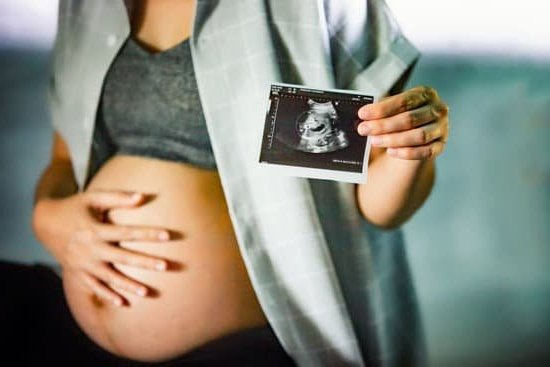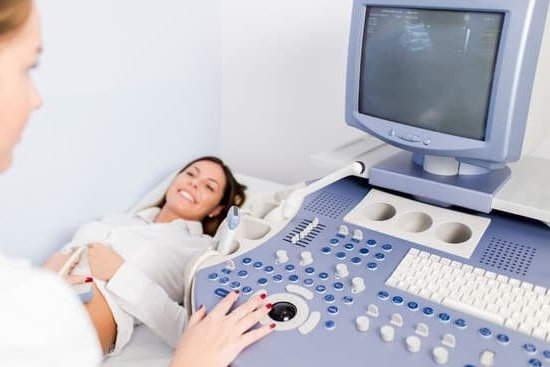When does ectopic pregnancy pain start? Ectopic pregnancy is a potentially life-threatening condition in which a fertilized egg implants outside of the uterus, usually in the fallopian tubes. It is important to understand the signs and symptoms of ectopic pregnancy, including when the associated pain typically begins, in order to seek prompt medical attention.
Ectopic pregnancies occur in about 1 out of every 50 pregnancies and can be caused by various factors such as pelvic inflammatory disease, previous surgery in the pelvic area, or abnormalities of the fallopian tubes. Recognizing the risk factors and understanding the condition is crucial for early detection and treatment.
In this article, we will explore what ectopic pregnancy is, its causes and risk factors, as well as common signs and symptoms. We will also delve into when ectopic pregnancy pain starts, detailing its timeline and onset. Additionally, we will discuss different types of ectopic pregnancy pain and how to seek prompt medical help if there is suspicion of an ectopic pregnancy. Understanding this condition and knowing when to seek medical attention can make a life-saving difference.
What Is Ectopic Pregnancy
Ectopic pregnancy occurs when a fertilized egg implants itself outside of the uterus, most commonly in the fallopian tubes. This condition is considered a medical emergency as it can result in serious complications if left untreated. Understanding the causes and risk factors of ectopic pregnancy is crucial for early detection and prompt medical intervention.
Causes of Ectopic Pregnancy
The exact cause of ectopic pregnancy is often unknown, but several factors increase the risk of this condition. These include previous ectopic pregnancies, pelvic inflammatory disease (PID), history of reproductive surgery or tubal ligation, and fertility treatments such as in vitro fertilization. In some cases, abnormalities in the fallopian tubes can also lead to an increased risk of ectopic pregnancy.
Risk Factors for Ectopic Pregnancy
Certain factors may increase a person’s likelihood of experiencing an ectopic pregnancy. These include smoking, older age (above 35), history of sexually transmitted infections (STIs), and using an intrauterine device (IUD) for contraception. Additionally, being pregnant while using progestin-only birth control methods such as the mini-pill or contraceptive implant could pose a higher risk for ectopic pregnancy.
It is important to note that having one or more of these risk factors does not necessarily mean that someone will experience an ectopic pregnancy. However, being aware of these potential risks can help individuals and their healthcare providers take proactive measures to monitor for signs and symptoms of this condition.
Signs and Symptoms of Ectopic Pregnancy
When it comes to ectopic pregnancy, early detection is key to preventing serious complications. Understanding the signs and symptoms of ectopic pregnancy can help individuals seek prompt medical attention, which could ultimately save their life. Here are some of the most common signs and symptoms to watch out for:
- Abdominal or pelvic pain: The pain associated with an ectopic pregnancy may start out mild and intermittent, but it can quickly become severe and constant. It is often described as sharp or stabbing.
- Vaginal bleeding: This may be heavier or lighter than a normal period. It may also be accompanied by clotting.
- Shoulder tip pain: This type of pain occurs when the blood from a ruptured ectopic pregnancy irritates the diaphragm, causing referred pain in the shoulder.
- Weakeness, dizziness, or fainting: These symptoms occur when the fallopian tube ruptures and causes internal bleeding, leading to low blood pressure and shock.
It’s important to note that not everyone will experience all of these symptoms, and that they can vary in intensity. In some cases, there may be no noticeable symptoms at all until the ectopic pregnancy has progressed significantly. This is why it’s crucial to seek medical attention if you suspect you may have an ectopic pregnancy.
If you experience any of these signs and symptoms, particularly if you have a known risk factor for ectopic pregnancy such as a history of pelvic inflammatory disease or previous ectopic pregnancies, it’s important to seek medical help immediately. A healthcare professional will be able to perform tests such as ultrasound scans and blood tests to confirm whether an ectopic pregnancy is present, and will recommend the appropriate course of action based on your individual circumstances.
When Does Ectopic Pregnancy Pain Start
Ectopic pregnancies occur when a fertilized egg implants itself outside of the uterus, most commonly in the fallopian tube. One of the key symptoms of an ectopic pregnancy is abdominal or pelvic pain, which can vary in intensity. Understanding when this pain starts and how it progresses is important for early detection and prompt medical attention.
The onset of ectopic pregnancy pain can vary from woman to woman, but it typically begins between the 4th and 12th week of pregnancy. The pain may start as mild discomfort or cramping, often on one side of the abdomen. As the ectopic pregnancy progresses, the pain can become more severe and sharp, especially during activities like walking or bowel movements. In some cases, the pain may radiate to the shoulder area due to internal bleeding.
It’s important to note that not all women with ectopic pregnancies experience noticeable pain. Some women may only have mild or nonspecific symptoms such as vaginal bleeding, dizziness, or gastrointestinal disturbances. This is why it’s crucial to pay attention to any unusual symptoms and seek medical help if there are concerns about a possible ectopic pregnancy.
| Weeks of Pregnancy | Pain Description |
|---|---|
| 4-8 weeks | Mild cramping or discomfort in lower abdomen |
| 8-12 weeks | Increasingly severe and sharp abdominal pain, possibly radiating to shoulder area |
Understanding the Different Types of Ectopic Pregnancy Pain
When it comes to ectopic pregnancy, pain is one of the most common and notable symptoms. Understanding the different types of ectopic pregnancy pain can help individuals recognize the condition and seek medical help promptly.
Abdominal Pain
One of the main types of ectopic pregnancy pain is abdominal pain. This pain is often described as sharp and stabbing, and it may occur on one side of the abdomen. The pain may also radiate to the pelvic area or even into the shoulder if there is internal bleeding. Abdominal pain associated with ectopic pregnancy can vary in intensity and may come and go.
Vaginal Bleeding
Another type of ectopic pregnancy pain is vaginal bleeding. This bleeding can range from light spotting to heavy bleeding, similar to a menstrual period. Vaginal bleeding in combination with abdominal pain is a key indicator of ectopic pregnancy and should prompt immediate medical attention.
Pain During Bowel Movements or Urination
Women with an ectopic pregnancy may also experience pain during bowel movements or urination. This type of pain can be caused by the pressure exerted on nearby organs by the growing embryo outside of the uterus.
Recognizing these different types of ectopic pregnancy pain is crucial for early detection and seeking prompt medical attention. If you are experiencing any of these symptoms, especially if you suspect an ectopic pregnancy, it’s important to consult a healthcare professional immediately for proper diagnosis and treatment.
Seeking Medical Help
When a woman suspects she may be experiencing an ectopic pregnancy, it is crucial that she seeks medical help immediately. The onset of ectopic pregnancy pain varies from person to person, but it is important to be aware of the typical timeline in order to recognize the symptoms early. The pain usually begins around 6-8 weeks after the last normal menstrual period, although it can occur earlier or later for some women.
The pain associated with an ectopic pregnancy often starts as mild and intermittent cramping in the lower abdomen or pelvic area. It may also start as a sharp, stabbing sensation on one side of the abdomen. Some women describe the discomfort as a dull ache that comes and goes. As the ectopic pregnancy progresses, the pain can become more severe and constant, and may radiate to the shoulder or neck.
If you suspect you may have an ectopic pregnancy, it is important to seek medical help right away. Contact your healthcare provider or go to the emergency room if you experience any symptoms such as severe abdominal or pelvic pain, vaginal bleeding, dizziness, weakness, shoulder pain, or fainting. Early detection and prompt medical attention are essential in preventing complications and ensuring a successful outcome.
Treatment Options for Ectopic Pregnancy
When a woman is diagnosed with an ectopic pregnancy, it is crucial for her to understand the different treatment options available. The type of treatment recommended will depend on various factors such as the size and location of the ectopic pregnancy, the level of hCG in the blood, and the presence of symptoms. It is important for women to discuss their options with a healthcare provider to determine the best course of action.
There are several treatment options for ectopic pregnancy, including:
- Medical Management:
- Methotrexate: This medication is often used to stop the growth of cells in early pregnancy. It works by stopping the growth of rapidly dividing cells, which includes those in a developing embryo.
- Monitoring: In some cases where the ectopic pregnancy is small and hCG levels are low, a doctor may recommend carefully monitoring hormone levels and possibly using ultrasounds to track changes over time.
- Surgical Management:
- Laparoscopic Surgery: A minimally invasive procedure where a surgeon will remove the ectopic pregnancy while preserving the fallopian tube.
- Laparotomy: In more severe cases, such as if there is heavy bleeding or rupture, open abdominal surgery may be necessary to remove the ectopic pregnancy and repair any damage.
- Expectant Management:
– In some cases, especially if an ectopic pregnancy is detected very early and has not yet caused complications, a doctor may opt for expectant management – closely monitoring hormone levels and symptoms over time.
It is important to note that treatment for an ectopic pregnancy should be sought out as soon as possible once it has been diagnosed. The longer an ectopic pregnancy remains untreated, the higher chance it has to cause serious complications such as rupture and internal bleeding.
Complications and Long-Term Effects of Ectopic Pregnancy
Ectopic pregnancy can lead to a range of complications and long-term effects if not promptly diagnosed and treated. One of the most serious complications is the risk of rupture, which can cause severe internal bleeding and be life-threatening. Rupture typically occurs between 6 to 16 weeks of gestation, but it can happen earlier in some cases. This is why it is crucial to recognize the signs and symptoms of ectopic pregnancy early on.
In addition to the risk of rupture, ectopic pregnancy can also result in damage to the fallopian tubes or other reproductive organs. This damage may affect fertility and increase the risk of future ectopic pregnancies. Studies have shown that about 10-15% of women who have had an ectopic pregnancy may experience difficulties conceiving in the future. Therefore, timely diagnosis and treatment are essential to minimize these potential long-term effects.
Furthermore, there can be psychological repercussions for individuals who have experienced an ectopic pregnancy. The emotional impact of losing a pregnancy combined with the fear and uncertainty surrounding a potentially life-threatening situation can lead to anxiety, depression, or post-traumatic stress disorder (PTSD). It is important for individuals who have gone through an ectopic pregnancy to seek emotional support as they navigate this challenging experience.
| Complications | Long-Term Effects |
|---|---|
| Risk of rupture leading to severe internal bleeding | Damage to fallopian tubes affecting fertility |
| Potential impact on future pregnancies | Psychological repercussions such as anxiety and depression |
Conclusion
In conclusion, ectopic pregnancy is a serious condition that requires prompt medical attention. Recognizing the signs and symptoms early on is crucial in order to seek appropriate treatment and avoid potential complications.
As we have discussed, ectopic pregnancy pain can start as early as 6-8 weeks after the last menstrual period, and may present as sharp, stabbing pain in the lower abdomen or pelvis. It is important for individuals to be aware of these symptoms and seek medical help if they suspect they may have an ectopic pregnancy.
Early detection and intervention are key in managing ectopic pregnancy. By seeking medical help promptly, treatment options such as medication or surgery can be considered to address the condition before it becomes life-threatening. Additionally, understanding the potential risk factors and being aware of one’s own reproductive health can aid in preventing ectopic pregnancies or catching them early on.
It is important to remember that while ectopic pregnancy can be a frightening experience, seeking help from healthcare professionals can make a significant difference. By understanding the signs, symptoms, and timeline for when ectopic pregnancy pain starts, individuals can take proactive steps to protect their health and well-being. Early detection saves lives, making it essential for anyone experiencing possible symptoms of ectopic pregnancy to seek immediate medical attention.
Frequently Asked Questions
How Soon Would You Know if You Have an Ectopic Pregnancy?
You may know you have an ectopic pregnancy when you experience symptoms like vaginal bleeding, sharp abdominal or pelvic pain, shoulder pain, weakness, dizziness, or fainting. If you suspect an ectopic pregnancy, seek medical attention immediately.
What Does Early Ectopic Pain Feel Like?
Early ectopic pain can feel like a sharp or stabbing sensation in the abdomen or pelvis. Some women describe it as a dull ache that comes and goes. It might also cause shoulder pain due to bleeding irritating the diaphragm.
What Weeks Does an Ectopic Pregnancy Rupture?
An ectopic pregnancy can rupture at any stage, but it commonly happens between weeks 6 and 8 of pregnancy. Rupture may occur suddenly and cause severe abdominal pain, heavy vaginal bleeding, lightheadedness, and fainting—a medical emergency requiring immediate surgery to prevent life-threatening complications.

Welcome to my fertility blog. This is a space where I will be sharing my experiences as I navigate through the world of fertility treatments, as well as provide information and resources about fertility and pregnancy.





